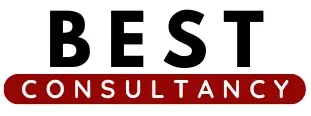Study In Germany for Free 2024|Bachelor, Master|
Study in Germany has always been the first choice for students from all over the world. Due to its exceptional studies, training courses and best living standard, it is highly demanded country for students.
Do you know, Germany is one of the few country, which offers you free education. It has highest number of multi-national companies, which offers students jobs in many departments.
Acceptance Ratio of 2023-24
For international students, acceptance ratio has changed from previous years. Around half of the students are from different countries in each university.

Bachelor’s programs in Germany
Germany is full of opportunities, with a significant portion taught in English. Famous for their cost-effectiveness, robust academic content, hands-on educational approach, and promising career prospects, bachelor’s degrees attract a considerable portion of international students. In the academic year 2023/2024, 38.9% (approximately 152,500 students) of international students were enrolled in bachelor’s programs.
Master’s programs in Germany
Germany boast a wide array of options, many of which are taught in English. Renowned for their affordability, high-quality curricula, hands-on learning experiences, and promising career opportunities, master’s degrees remain a popular choice among international students in Germany. As of the latest data available for the 2023/2024 period, 45.2% of international students (approximately 157,500 individuals) were enrolled in master’s programs.
Envision yourself delving into the heart of European academia while honing your skills for future endeavors.
For those contemplating a doctoral degree (PhD) and harboring a passion for research, Germany emerges as an enticing destination. World-class universities, enticing research prospects, financial aid options, and a vibrant cultural landscape, Germany stands as an exceptional choice for pursuing a PhD.
Bachelor’s Requirements
Major Requirements for Bachelor’s Program Applications in Germany:
German Language For Bachelor’s Degree
Master’s Requirements
Common Admission Criteria for Master’s Programs in Germany:
Doctoral Requirements (PhD)
Finding a PhD Program and a Supervisor in Germany:
You can check this website as well for Research institutions
PhD Programs in Germany
Individual PhD Programs
Structured PhD Programs:
Guidelines for PhD Program Application:
Block Account is Must (For Non-scholarships)
Financial Requirement for Student Visa:
As per German government regulations, international students intending to pursue a master’s degree in Germany must show financial resources of at least €11,208 annually (equivalent to €934 per month) to qualify for a student visa.
Preparation Strategies:
Application Submission
Once the requirement is completed then your application will be submitted to the university admission portal. After submitting your application, the next step is to await the university’s decision. During this waiting period, you may consider enhancing your language skills or researching the specific visa and travel requirements for Germany. Additionally, exploring accommodation options is recommended.
The university will inform you via email regarding the status of your application. If accepted, they will provide instructions for the next steps you need to take.
Need Health Insurance
Health insurance is mandatory for all international students in Germany. If your home country has an agreement with Germany, you can usually utilize your existing health insurance, often with a European Health Insurance Card (EHIC). Some cases may also accept private health insurance from other countries.
Alternatively, you have the option to acquire insurance from a German provider, with student packages typically costing around €120 per month, varying based on your age and the provider.
Applying For German Student Visa
- Visa Application Guide: Access the comprehensive German student visa guide covering all aspects of the process, including requirements, application procedures, fees, and more. You will be informed about the documents for the visa by email once you schedule the interview.
- Initiating the Process: Schedule a visa interview at the German Embassy or Consulate in your home country, ideally around three months prior to your intended start of studies.
- Document Submission: During the interview, submit all necessary documents, including proof of admission, language proficiency, financial resources, and health insurance.
- Potential Requests: Be prepared for potential requests for additional documents during the interview, and ensure that your passport remains valid for the duration of your stay.
Arrival in Germany and Orientation
- Completing Enrollment Process: Finalize the enrollment process, including course registration, schedule retrieval, and understanding academic criteria.
- Acquiring Student Identification: Obtain your student identification card, often referred to as a “Studierendenausweis” in German.
- Residence Registration Procedure: Register your residence in Germany, a mandatory process facilitated by obtaining a “Meldebescheinigung” from the Resident’s Registration Office (Einwohnermeldeamt).
- Establishing a Local Bank Account: Receive guidance on initiating a bank account in Germany, essential for managing finances during your stay.
- Navigating Campus Facilities: Engage in a campus tour to familiarize yourself with available facilities, libraries, and laboratories.
- Accessing Language Support: Explore language courses or resources provided by some universities to aid international students in enhancing their German language proficiency, if necessary.


